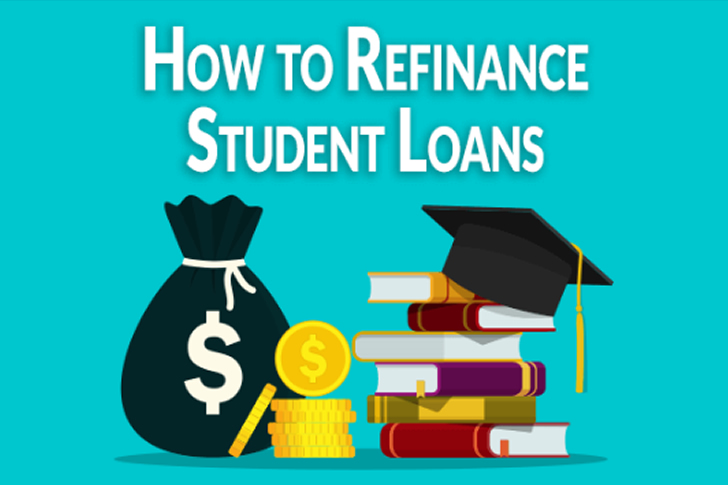Refinancing student loans can significantly reduce interest rates and save money. Here's your comprehensive guide to understanding and leveraging this financial strategy.

Refinancing involves replacing your current student loan with a new one at a potentially lower interest rate. This process can simplify your repayment terms and reduce the total amount paid over time.
Refinancing can be advantageous if:- Current interest rates are lower than your original loan rate.- You have improved your credit score since taking out the initial loan.- You want to switch from a variable to a fixed interest rate or vice versa.
Interest rates dictate the cost of borrowing money. Even a slight reduction in rates can lead to significant savings in the long run.
Before deciding to refinance, ensure you're eligible by considering these factors:
A higher credit score often qualifies you for better interest rates. Aim for a score in the mid-600s or higher.
Lenders look for steady income and stable employment. A strong financial profile increases your chances of securing favorable rates.
This ratio compares your monthly debt payments to your income. Lenders prefer a lower ratio, as it indicates financial stability.
Not all lenders offer the same deals. Comparing different lenders can help you find the top rates and terms.
Once you've decided to refinance, follow these steps to ensure a smooth transition:
Refinancing can offer several key advantages beyond lower interest rates:
Combining multiple loans into one can streamline your monthly payments, making it easier to manage your finances.
Lower interest rates reduce the overall amount paid over the loan term, potentially saving you thousands of dollars.
Refinancing allows you to choose a repayment plan that fits your current financial situation—whether that means extending or shortening the loan term.
While refinancing offers numerous benefits, it's essential to consider potential downsides:
Federal student loans come with unique benefits, including income-driven repayment plans and loan forgiveness programs, which private refinanced loans may not offer.
Some refinancing options come with fees that may offset the benefits of lower interest rates. Ensure the savings outweigh these costs.
To maximize the benefits of refinancing, follow these expert tips:
Refinancing your student loans can be a powerful tool for managing debt effectively. By understanding the intricacies of interest rates and assessing your unique financial situation, you can optimize your loan terms and achieve significant savings. Always conduct thorough research and consider professional advice to make the very informed decision.
By taking control of your student loans through refinancing, you'll pave the way for a more secure and financially stable future.
Explore the Tranquil Bliss of Idyllic Rural Retreats

Ultimate Countdown: The 20 Very Legendary Gaming Consoles Ever!

Understanding Halpin and its Influence

Affordable Full Mouth Dental Implants Near You

Discovering Springdale Estates

Illinois Dentatrust: Comprehensive Overview

Embark on Effortless Adventures: Unveiling the Top in Adventures Made Easy Outdoor Equipment

Unveiling Ossur Valves: Innovation in Prosthetics

Unlock the Full Potential of Your RAM 1500: Master the Art of Efficient Towing!
